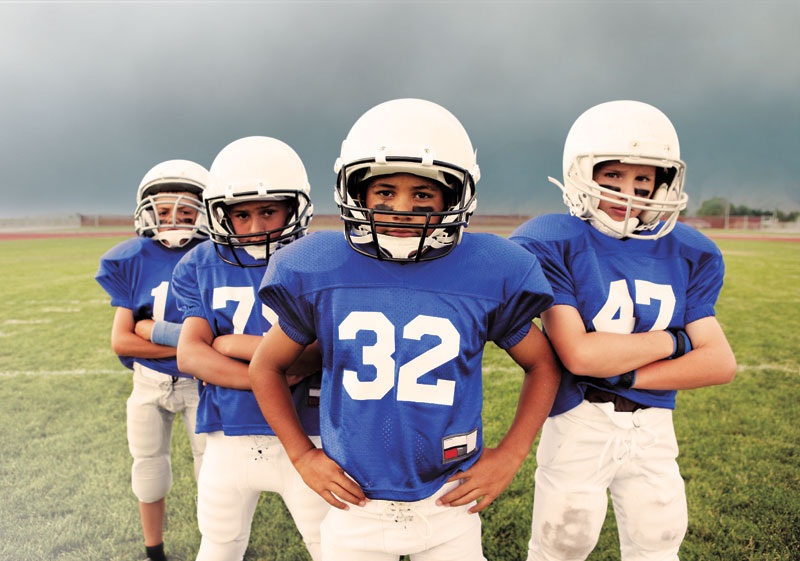Dina Morrissey, M.D., M.P.H., research associate for The Injury Prevention Center at Hasbro Children's Hospital, recently led a study that found that while compliance with mandated provisions in youth sports concussion laws was high among Rhode Island Interscholastic League (RIIL) high schools, compliance with recommended concussion protocols was very limited. The study, recently published in the Journal of Trauma and Acute Care Surgery, suggests that more concussion related standards and protocols need to be written into law in order to raise compliance rates among youth sports groups.
"An estimated 7.7 million children and adolescents participate in organized sports each year and the Centers for Disease Control and Prevention estimates that they sustain between 1.6 and 3.8 million sports-related concussions annually," said Morrissey. "In response to this, the state of Rhode Island passed the School and Youth Programs Concussion Act (SYPCA) in July 2010. The law outlines both mandatory and recommended provisions in regard to managing student athletes with a suspected concussion. Our study assessed compliance with this law among Rhode Island high schools and community league organizations."
In a 2013 statewide assessment of Rhode Island concussion law compliance among RIIL member high schools, non-member high schools and selected community league sports organizations, the study team found nearly universal compliance with mandated elements of SYPCA.
All athletic directors surveyed reported that they require concussion information sheets to be signed by both student athletes and parents prior to the start of each sports season. The research team also found that all coaches and 93 percent of volunteers have completed annual concussion training.
One hundred percent of surveyed groups also reported that any student athlete with a suspected concussion is immediately removed from play, and 93 percent reported that those students cannot return to play until they receive written clearance from a licensed physician, all per the SYPCA mandates.
"These SYPCA laws only apply to schools that are RIIL members," said Michael Mello, M.D., M.P.H., director of the Injury Prevention Center and co-author of the study. "When we explored other non-RIIL schools and sports organizations where SYPCA is recommended but not required, and also any of the recommendations that are not legally required of RIIL members, we found a very different compliance rate."
Only a handful of schools require student athletes to complete any type of pre-season neurocognitive testing, and nearly 20 percent don't offer it to student athletes at all. Half of the surveyed groups reported developing a written return to play protocol.
"These compliance statistics show us that in order to best protect youth athletes in Rhode Island, all recommendations outlined in the SYPCA law should be made mandatory," said Mello. "Additionally, non-RIIL schools, as well as community sports organizations, should also be required to comply with the law."
Neha Raukar, M.D., director of the Center for Sports Medicine and a co-author of the study, sees many youth athletes in her clinic for concussion treatment. "If a concussion is not treated properly and student athletes return to play too soon, they are at high risk for prolonging their symptoms, meaning more time out of the classroom and on the bench. They are also at risk for experiencing a devastating post-concussion event, such as second impact syndrome, which can be fatal," said Raukar.
"We are only just beginning to understand the long-term consequences of sustaining repeated head trauma and concussions," said Raukar. "Physicians, coaches and school staff alike all need to know the importance of properly diagnosing concussions, as well as the criteria for when a student athlete can both return to school and return to sports."
But, Morrissey also urges that the public needs to play a role and ensure that their school or community sports organization follows all the recommendations in the concussion law. "One example of our community pushing for better concussion protection for our students can be seen in school nurse annual training," said Morrissey. "At the time of our survey, only one quarter of surveyed groups required school nurses to complete annual concussion training. But now there is a new law in place to try to correct this, and Rhode Island is one of only a handful of states to reach out to school nurses for training. This is a clear step in the right direction."
Read more here

No comments:
Post a Comment